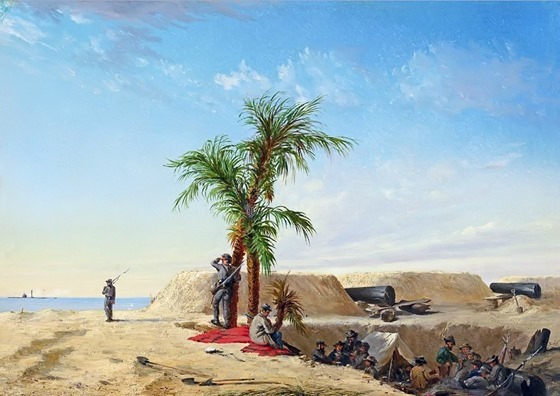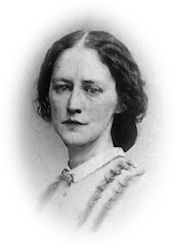September 15, Tuesday. The President read the paper which he had drawn up. Mr. Chase proposed as a preferable course that the President should, pursuant to the act of the 3rd of March last, suspend by proclamation the privilege of the writ of habeas corpus on military questions. This proposition, after discussion, met with favor from all, and the Council adjourned to 1 P.M. for Mr. Seward to prepare a proclamation. On meeting at one o’clock, the draft which Mr. Seward had prepared was criticized and after some modifications was ordered to be recopied and carried into effect. All came into the arrangement cordially after Stanton read the reports of sundry provost marshals and others detailing the schemes practiced for defeating the draft.
The question is raised whether the executive can suspend the privilege of the writ of habeas corpus without Congressional action. If the executive can suspend in the cases specified, which is generally admitted, the policy of falling back on the act of the 3d of March last is more than questionable, for if Congress has, as claimed, the exclusive right, can it delegate away that right? If the right is in the Executive, it is not wise nor proper to place the proclamation on the delegated grant in the law of last March which is made the basis of the proclamation. I think I am not mistaken in my impression that Mr. Chase is one of those who has claimed that the President had the constitutional right to suspend the privilege of this writ, yet he was to-day sensitive beyond all others in regard to it and proposed relying on the act of Congress instead of the constitutional Executive prerogative. He feared if the President acted on Executive authority a civil war in the Free States would be inevitable; fears popular tumult, would not offend Congress, etc. I have none of his apprehensions, and if it is the duty of the President, would not permit legislative aggression, but maintain the prerogative of the Executive.
Commander Shufeldt, an officer of ability, gives me trouble by a restless but natural desire for change and more active employment. Wishes an independent command, is dissatisfied to be in the South Atlantic Squadron. Inadmissible. It is only recently he has been reinstated in the service, on my special recommendation and by my efforts, against the remonstrance of many officers and their friends in and out of Congress. Now to give him choice of position over others who never left the service would be unjust. I cannot do it. Duty on his present station is arduous, irksome, exhausting; some one must perform it were he to leave.
Jane Stuart Woolsey to Joseph Howland
Point Lookout Hospital,
September.
Eliza’s help and all her little nice things were, and are, invaluable to us. . . . Things promise pretty fair here in every respect. The surgeon in charge is civil and ready to support us in everything necessary. The post is a queer one, hospital, military encampment, Contraband camp, rebel camp, Roman Catholic element and divided jurisdiction of Mrs. Gibbons and Miss Dix. Quite a mixture. We shall be involved in no gossip or small quarrels, but do our work as we find occasion, without partiality and without hypocrisy. . . . John, our man servant, is a nuisance. He interferes right and left, upsets everybody in a mistaken idea to serve us, and volunteers his views on all subjects. He would be in the guardhouse in a week if he didn’t go home to-night. . . .
September 15 — Still guarding the ford on the Robinson.
Tuesday, 15th.—Remained all night in depot at Acworth; left 6 A. M.; in Atlanta at 12 M. Orders to strike tents; left Atlanta 6 P. M.; at Stone Mountain 8 P. M.
15th. Reveille early and all ready to march at 5 but no orders. After remaining saddled two or three hours “Recall” blew. Ordered to be ready at noon. At 4:30 orders came and we saddled and went to town and witnessed the drumming out of a thief—whole Div.—sad sight. Pitied the man. Drunk and stole a horse. After dark marched out on Strawberry Plains road. Camped at 2 A. M. Quite tired and sleepy.
Helena, Tuesday, Sept. 15. Awakened to find the boats tied up at Helena, which point we reached at 3:30 A. M. Guards were placed to prevent the boys going ashore; notwithstanding, the boys went and came. At 2 P. M. swung out and after much trouble affected a landing where we could disembark. Got off and into park by sundown. Indications of rain. (I on guard.) Many of the boys down in the streets raising “ned”, breaking into saloons, drunk, etc.
September 15th.
We marched fifteen miles to Barboursville and encamped on the banks of the Cumberland River. Many of the men fell out by the way and came straggling into camp until after dark. I am too tired to write, and will lie me down and rest.
Tuesday, 15th—The weather continues sultry and hot. We have our camp fixed up quite comfortably again. There are not many of the sick in the regiment now, most of them having been sent away, and others of us who were sick are getting stronger. I am on duty again, having been to see the doctor only the one time.
September 15th. The fascinations of our charming young hostess, together with the large collection of books and music, were so tempting that most of us spent the whole morning in the house; such a state of happiness for the Bold Soldier Boy was not likely to last long, of course, and we were determined to make the most of it, but at noon we were ordered into a defensive position, and fate compelled us to take a hasty leave, and so bidding good bye to our fair hostess, we reluctantly mounted our horses and rode away.
The division moved forward about three miles south of the town and formed in line of battle along the high ground. The enemy, however, did not show up, and after standing all day about the line, the troops were ordered to bivouac for the night. Broom found another house suitable for headquarters, but it was abandoned and there was no fair lady on hand to weave a web of romance and make it attractive.

Painting by Conrad Wise Chapman.
“This is a fancy sketch by the artist, and simply designed to show the subterfuge that sometimes had to be resorted to when there was a lack of guns, or there was a delay in receiving them. The fortifications would be prepared, and ‘Quakers’ mounted until the arrival of real guns. The ‘Quaker’ were made of wood and painted black, and at a distance could not be told from the genuine article.” – Conrad Wise Chapman, 1898











